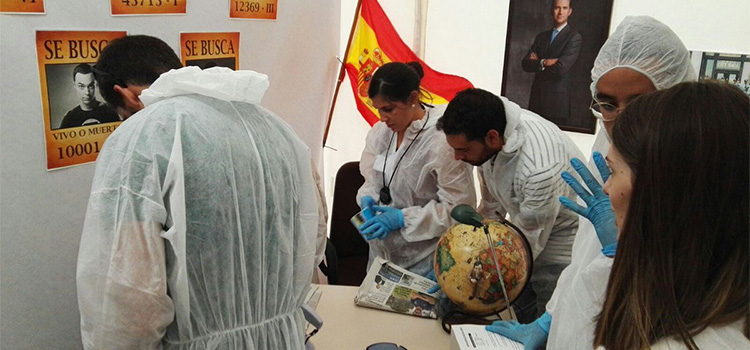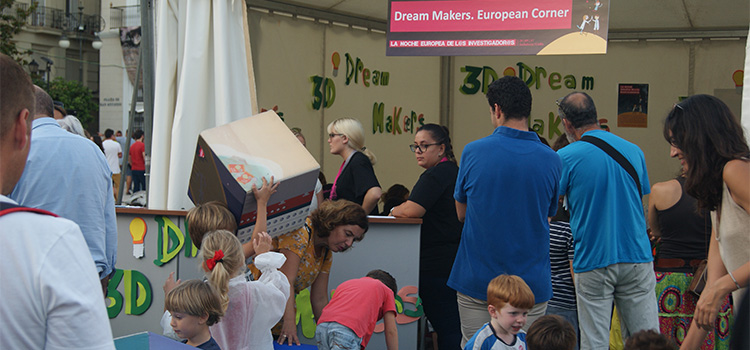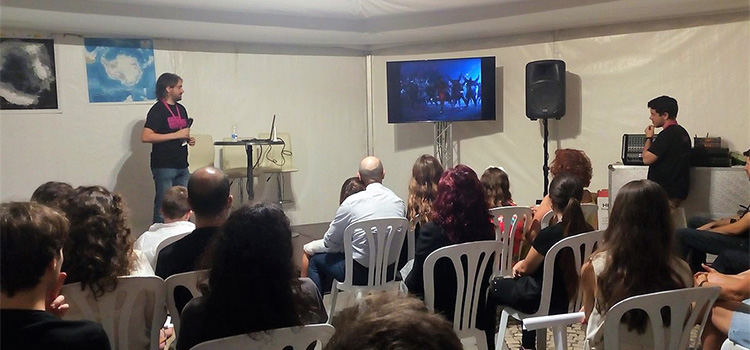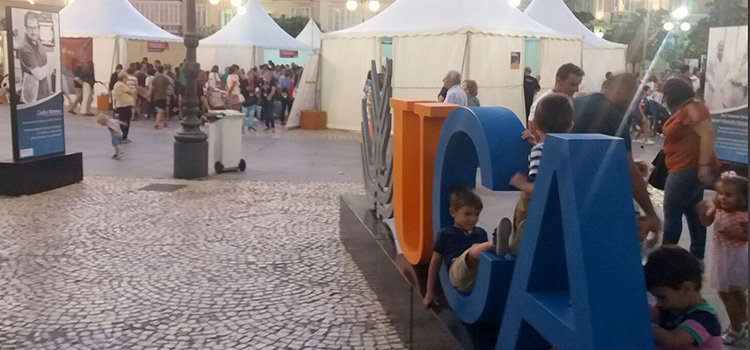A total of 300 researchers and 100 volunteers performed 63 activities in the squares of San Antonio and Mina
More than 6,000 people have taken part in the European Researchers’ Night in the center of Cadiz in the 63 activities of scientific dissemination that 300 researchers and a hundred of volunteers carried out, coordinated by UCA, with the aim of bringing science to society. Workshops, microencounters, exhibitions, experiments, guided tours, theaters or scientific shows brought the research work to the public.
This macro scientific event, which was simultaneously held in all Spanish provincial capitals, was developed in tents that were arranged in iconic enclaves such as the squares of San Antonio and Mina.
In this way, visitors learned first-hand the research on topics from all areas of knowledge, through 39 workshops focused on the nano world, neuropsychology and psychophysics with latest generation technologies, decapods of Cadiz, physic and forensic anthropology techniques for human identification, the application of music as a health promoter, topographic concepts, the construction of three-dimensional scenarios, the main species of algae in the Cadiz coast or the relevant role that plankton plays in marine ecosystems, among others.


Del mismo modo, se puso nombre y cara a los grupos investigadores desde la muestra Los rostros de la Investigación Marina en Cádiz, una exposición distinta que pretende dar a conocer a una treintena de investigadores de la provincia, con sus nombres, apellidos e imágenes, y sus trabajos.
In addition to the workshops, they had microencounters with UCA scientists involved in various research projects focused on, for example, flood prevention, biology and ecology of carnivorous plants, Spanish research in Antarctica, underwater archaeological heritage of Cadiz or radiation for health, among other topics.
Likewise, tastings were made around the wine, its pairing, the grape and the products made from these, not forgetting the beer and its healthy properties in the Association of the Press of Cadiz and in the Cajasol Foundation.
In the same way, the research groups were given names and faces on the exhibition The faces of Marine Research in Cadiz, a different exhibition that aims to make around thirty researchers known in the province, with their names, surnames and images, and their works.


The European Researchers’ Night is a European project of scientific dissemination promoted by the European Commission within the Marie Sklodowska-Curie actions of the Horizon 2020 program, which has simultaneously taken place in more than 250 European cities since 2005.


